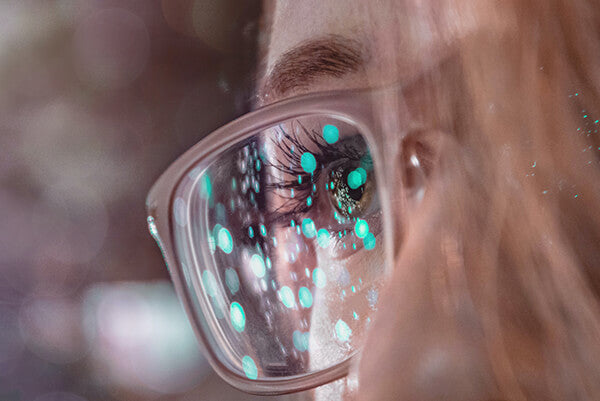Finding the Perfect Blue Light Glasses for Your Lifestyle
"Blue light is ubiquitous in our digital-centric world, and its impact on our eyes can range from causing myopia and cataracts to disrupting our sleep patterns. With a myriad of blue light glasses available, understanding which ones are best suited for you is essential. Read on to make an informed choice."
In today's screen-saturated environment, especially in countries like Canada and the United States, the average individual spends 10-11 hours daily facing digital screens. This translates to a staggering 3,650-4,015 hours per year! While blue light is a natural component of sunlight, our modern devices emit it well into the night, potentially leading to eye strain, sleep disturbances, and other health issues.
The Role of Blue Light in Our Lives
Blue light has a dual role in our lives. On one hand, it's a necessary component of natural light that helps regulate our circadian rhythms and sleep cycles. On the other hand, excessive exposure to blue light from digital screens can lead to various health concerns, including disrupted sleep patterns and digital eye strain.
Addressing Blue Light Exposure
While reducing screen time is beneficial, it's not always practical for those who rely heavily on technology for work, study, or leisure. This is where blue light blocking glasses become an essential accessory.
How Blue Light Glasses Work
These specialized glasses are equipped with lenses designed to block or absorb blue light, preventing it from reaching your retinas and mitigating potential harm. They offer a solution for those who wish to continue enjoying digital content without the associated risks.

The Different Types of Blue Light Glasses
Yellow Blue Light Blocking Lenses Yellow or amber-tinted lenses are highly effective at blocking blue light but may not be the most visually appealing or suitable for all-day wear. They're ideal for nighttime use, offering a comfortable viewing experience during evening hours without the yellow tint affecting color perception.
Clear Blue Light Blocking Lenses Clear lenses offer a stylish and modern option for daily wear, allowing you to enjoy the benefits of blue light protection without the color distortion associated with tinted lenses. While they may not block as much blue light as yellow lenses, they still provide significant protection, making them suitable for frequent screen users.
Blue Light Reflective Lenses Reflective lenses combine the best of both worlds: they're as effective as yellow lenses in blocking blue light and come in clear, stylish frames. These glasses are perfect for individuals who want a fashionable and functional solution to blue light exposure, suitable for various activities and lifestyles.
Making an Informed Decision
When choosing the right blue light glasses, consider factors such as your daily screen time, sensitivity to blue light, work habits, and fashion preferences. Here are some questions to ask yourself:
- How many hours do I typically spend in front of screens each day?
- How does prolonged screen exposure affect my eyes and sleep?
- Do I often work or engage with screens at night?
- Am I concerned about the long-term health of my eyes?
- How important is style when it comes to selecting eyewear?
Pro tip: Once you've selected your glasses, enhance their effectiveness by adopting additional measures to reduce blue light exposure. Taking regular breaks from screens and minimizing cellphone use before bedtime can further alleviate sleep disruption and eye strain.

























